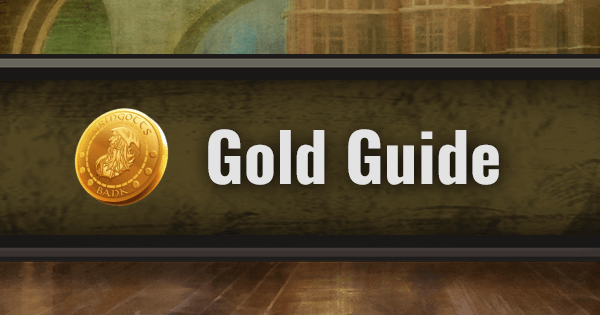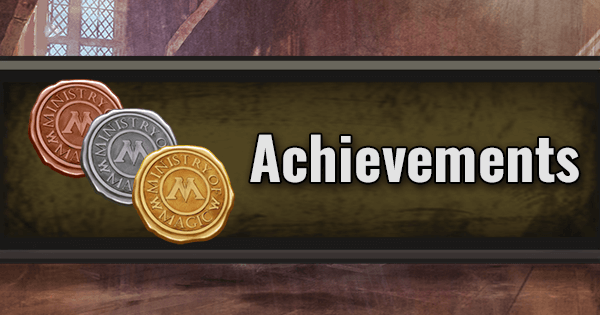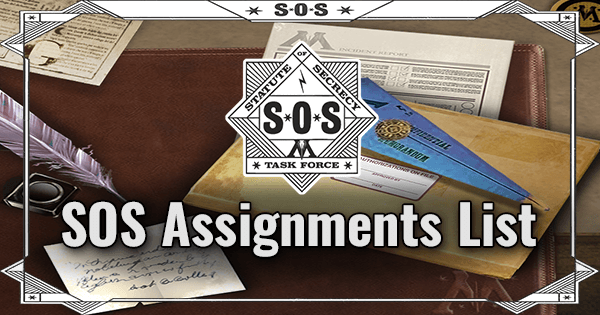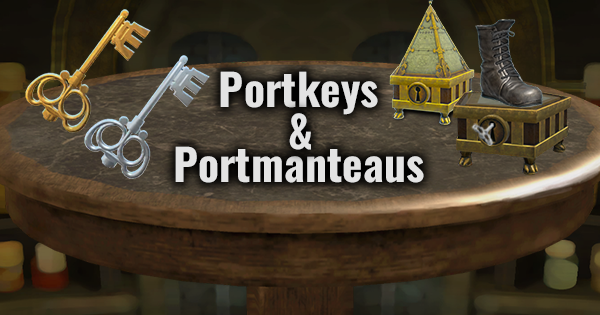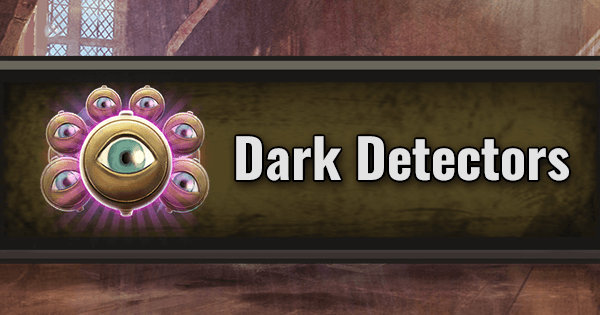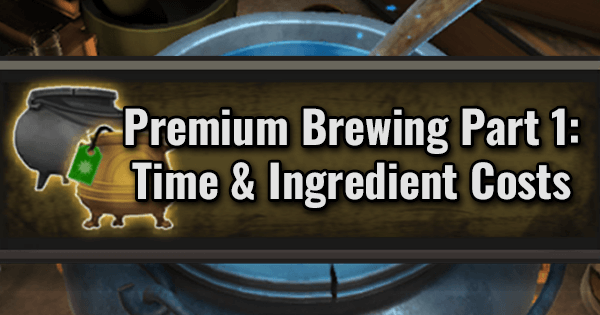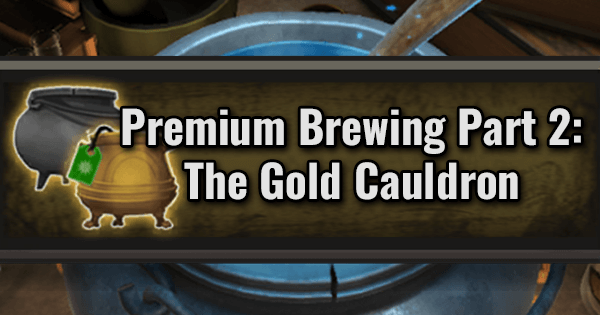Introduction
Gold is the primary in-game currency in Wizards Unite. It can be earned for free within the game or purchased for real-life money. With it, players can buy premium items, inventory space, profile cosmetics, and more.
This guide will cover how to earn gold for free in Wizards Unite, which bundles to buy with real-life money, and what to spend that hard-earned gold on in-game.
Free Gold
Wizards Unite has several sources of free gold, both finite and renewable. Finite sources are ones players can only earn once, while renewable sources players can earn again and again, typically only limited by time.
There are several finite sources of gold throughout the game, currently totalling 1,608 free gold. That is not to say earning all of that gold will be easy or something players can do overnight. The finite sources are as follows:
-
All currently available SOS Assignments: 75 gold
-
All currently available Achievements: 748 gold
-
Current level-up rewards to level 60 (max level): 785 gold
The gold available for SOS Assignments is awarded after every set of tasks, so this is a relatively stable source of income in the early game and might provide more gold as the story (and SOS Assignments with it) expands.
Gold for Achievements and Level-up rewards are relatively easy to earn in the early game, but earning gold this way becomes more and more grind-y as players advance. In other words, don’t expect to have full pockets any time soon.
While the finite sources of gold can be quick to dry up or become grind-y, the game does offer some relatively easy, renewable sources of gold:
-
Daily Assignments: 10 gold per day
-
Daily Treasures: 240 gold per month (about 8 gold per day)
-
Random Trace drops: low chance for 1 gold in any successful Trace
-
Event Rewards: varies, typically 50 Gold for completing Special Assignments
Completing the Daily Assignments currently requires using a runestone to battle in a Fortress. Runestones are abundant early game but become slower to obtain for free as your rank in each Trace Family increases.
However, thanks to the frequency of Brilliant Events, maintaining a steady income of Runestones should be manageable for most players. Players who find themselves running out of Runestones can always buy a bag of Runestones as well.
If you are doing one Fortress battle per day and running out of Runestones, the bag of Runestones is economically worth it. One bag (40 gold) lets you complete 10 days of Fortress battles and daily assignments (100 gold).
Players can also receive gold as a random drop in Traces, but the chances are low and a drop typically only awards 1 gold. This is therefore an unreliable source of gold income, and for the purposes of this guide, it will not be included in the player budget.
Adding up all of these renewable gold sources, the average daily income comes out to about 18 gold per day:
(10 gold/day) + (240 gold/30 days) = (18 gold/day)
For players who need to purchase Runestones, this can be adjusted to 14 gold per day.
This figure can be a helpful benchmark, especially for players who have a limited (or no) budget to buy coins, for estimating whether a purchase in Diagon Alley is worth the expense in the long run and maintaining an overall good budget.
Buying Gold
Gold can also be acquired by simply buying it with real-life money. In all currencies the GamePress team has checked (USD, AUD, GBP, EUR, PLN), the higher cost bundles offer slight savings compared to the cheaper options.
However, players who opt to spend real-life money on the game should keep in mind that some of the special bundles cost real-life money, not gold, and offer the same amount of gold players would typically get with additional free items as well.
This means that it can be best to only buy as much gold as you expect to use at any one time, rather than buying the largest bundles, as the special bundles often offer better deals than gold-only bundles.
Spending Gold
Is all that gold burning a hole in your pocket? Here are some recommendations on what to prioritize your hard-earned gold on:
Priority
- Vault Extensions
While not absolutely necessary, investing in at least a few vault extensions will offer a big quality of life improvement. For late-game Fortress battles, the increased spell energy and potion capacity are a must to be able to consistently take on the toughest Foes.
- Spell Energy Capacity
In the long run, the vast majority of players will want to increase their Spell Energy capacity. For players in areas with poor Inn and Greenhouse density, this allows players to stock up in dense areas and still play for awhile after leaving.
Players in dense areas, however, will also benefit from increased Spell Energy capacity in the long run, as higher Fortress Chambers demand increasing amounts of Spell Energy. Higher capacity means players can play at Fortresses (or anywhere, really) for longer periods of time without running out of Spell Energy.
Good Value
- Dark Detectors
While reports are currently somewhat mixed about how effective Dark Detectors are, when they work well, they provide plenty of rare Foundables, which offer more Family XP for earning scrolls as well as a chance to fill in gaps in the Registry.
The bundle of three Dark Detectors (325 gold) offers a slight discount over buying them individually (just over 108 gold per Dark Detector, or a savings of 35 gold total). The bundle 15 Dark Detectors (1,400 gold) offers an even bigger discount (just over 93 gold per Dark Detector, or a savings of 400 gold total), but comes at a much higher price point.
- Silver Keys
Portkeys can be a great source of player XP, rare ingredients, rare Foundables, and scrolls (by increasing your Family XP). Silver keys let you unlock more Portkeys at a time, which can be especially important during limited time events involving Portkeys.
The bundle of four Silver Keys offers a slight discount over buying them individually (81.25 gold per key, or a savings of 35 gold total).
- Spell Energy:
For most players, spell energy is readily available at inns and greenhouses, and 100 gold is a steep cost to pay for those who forgot to check spell energy before starting a Fortress battle or Trace encounter. For those without good access to inns or greenhouses though, this bundle may be the only way to play the game. For anyone else, we don’t recommend it.
- Bag of Runestones:
As mentioned above, Runestones are necessary for maintaining your gold income. For most players, buying Runestones isn't necessary. However, if you're out of Runestones, they’re a good value for simply completing your daily assignments.
Of course, Fortress battles are also a good source of XP, spell books (by increasing your Challenges rank), and Fortress-exclusive Foundables needed to complete your registry, so they’re a good value if you’re battling more frequently as well.
- Brewing:
Cauldron rentals, buying ingredients, and paying to instantly finish a potion are generally not the most economical ways to spend your gold, but if you’re willing to spend more on the game, they can help speed up the game and reduce the headache of finding ingredients or waiting for all your potions to brew. For more information, check out our Premium Brewing Guide.
- Potion Bundles:
Most of these bundles are not very economical, as all of the potions currently available in the shop are available for free in the game by brewing. In most cases, even if a player is missing some of the ingredients for a potion, it is still cheaper to start brewing a potion and pay to immediately finish it than to buy the potion in the shop. (For more detail, see the above mentioned Premium Brewing Guide.)
That said, for players willing to spend more money on the game and in need of lots of potions (like for high level Fortress battles), the potion bundles are simply more convenient.
- Cosmetics:
Look, if you want to show off your House Pride with some sweet premium Ministry ID items, go for it! This is not the most economical option in terms of in-game benefits, but in-game benefits aren’t everything. If it makes you happy, you’re spending your gold right.
- Seed and Water Capacity:
In general, this is a very poor value for money, as it only offers 5 additional spaces. That’s 30 gold per slot. Very few ingredients that players can grow in greenhouses are rare, and the starting 50 slots are enough to keep stock of the seeds for rarer ingredients, plus some water. Even for the truly desperate gardener, we implore you to find another way to fulfill that craving.
Conclusion
Overall, Wizards Unite offers a wide range of ways to both earn and spend gold. The free gold, however, can take a while to accumulate, relative to the prices of the best shop items. That means players will need to save up to be sure they’re getting the best value for money with their purchases. If you do so, however, there are certainly a few options that will provide you with the bang for your buck.

